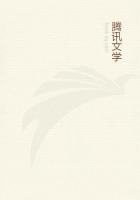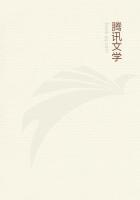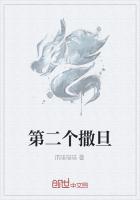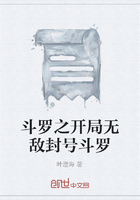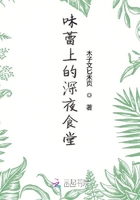For all the while there was, among these very French, here and there a variety of character and purpose, sufficient to burst through that very despotism, and to develop the nation into manifold, new, and quite original shapes.Thus it was proved that the uniformity had been only in their outside crust and shell.What tore the nation to pieces during the Reign of Terror, but the boundless variety and originality of the characters which found themselves suddenly in free rivalry? What else gave to the undisciplined levies, the bankrupt governments, the parvenu heroes of the Republic, a manifold force, a self-dependent audacity, which made them the conquerors, and the teachers (for good and evil) of the civilised world? If there was one doctrine which the French Revolution specially proclaimed--which it caricatured till it brought it into temporary disrepute--it was this: that no man is like another; that in each is a God-given "individuality," an independent soul, which no government or man has a right to crush, or can crush in the long run: but which ought to have, and must have, a "carriere ouverte aux talents," freely to do the best for itself in the battle of life.The French Revolution, more than any event since twelve poor men set forth to convert the world some eighteen hundred years ago, proves that man ought not to be, and need not be, the creature of circumstances, the puppet of institutions; but, if he will, their conqueror and their lord.
Of these original spirits who helped to bring life out of death, and the modern world out of the decay of the mediaeval world, the French PHILOSOPHES and encyclopaedists are, of course, the most notorious.
They confessed, for the most part, that their original inspiration had come from England.They were, or considered themselves, the disciples of Locke; whose philosophy, it seems to me, their own acts disproved.
And first, a few words on these same philosophes.One may be thoroughly aware of their deficiencies, of their sins, moral as well as intellectual; and yet one may demand that everyone should judge them fairly--which can only be done by putting himself in their place; and any fair judgment of them will, I think, lead to the conclusion that they were not mere destroyers, inflamed with hate of everything which mankind had as yet held sacred.Whatever sacred things they despised, one sacred thing they reverenced, which men had forgotten more and more since the seventeenth century--common justice and common humanity.It was this, I believe, which gave them their moral force.It was this which drew towards them the hearts, not merely of educated bourgeois and nobles (on the menu peuple they had no influence, and did not care to have any), but of every continental sovereign who felt in himself higher aspirations than those of a mere selfish tyrant--Frederick the Great, Christina of Sweden, Joseph of Austria, and even that fallen Juno, Catharine of Russia, with all her sins.To take the most extreme instance--Voltaire.We may question his being a philosopher at all.We may deny that he had even a tincture of formal philosophy.We may doubt much whether he had any of that human and humorous common sense, which is often a good substitute for the philosophy of the schools.
We may feel against him a just and honest indignation when we remember that he dared to travestie into a foul satire the tale of his country's purest and noblest heroine; but we must recollect, at the same time, that he did a public service to the morality of his own country, and of all Europe, by his indignation--quite as just and honest as any which we may feel--at the legal murder of Calas.
We must recollect that, if he exposes baseness and foulness with too cynical a license of speech (in which, indeed, he sinned no more than had the average of French writers since the days of Montaigne), he at least never advocates them, as did Le Sage.We must recollect that, scattered throughout his writings, are words in favour of that which is just, merciful, magnanimous, and even, at times, in favour of that which is pure; which proves that in Voltaire, as in most men, there was a double self--the one sickened to cynicism by the iniquity and folly which he saw around him--the other, hungering after a nobler life, and possibly exciting that hunger in one and another, here and there, who admired him for other reasons than the educated mob, which cried after him "Vive la Pucelle."Rousseau, too.Easy it is to feel disgust, contempt, for the "Confessions" and the "Nouvelle Heloise"--for much, too much, in the man's own life and character.One would think the worse of the young Englishman who did not so feel, and express his feelings roundly and roughly.But all young Englishmen should recollect, that to Rousseau's "Emile" they owe their deliverance from the useless pedantries, the degrading brutalities, of the medieval system of school education; that "Emile" awakened throughout civilised Europe a conception of education just, humane, rational, truly scientific, because founded upon facts; that if it had not been written by one writhing under the bitter consequences of mis-education, and feeling their sting and their brand day by day on his own spirit, Miss Edgeworth might never have reformed our nurseries, or Dr.Arnold our public schools.
And so with the rest of the philosophes.That there were charlatans among them, vain men, pretentious men, profligate men, selfish, self-seeking, and hypocritical men, who doubts? Among what class of men were there not such in those evil days? In what class of men are there not such now, in spite of all social and moral improvement? But nothing but the conviction, among the average, that they were in the right--that they were fighting a battle for which it was worth while to dare, and if need be to suffer, could have enabled them to defy what was then public opinion, backed by overwhelming physical force.

